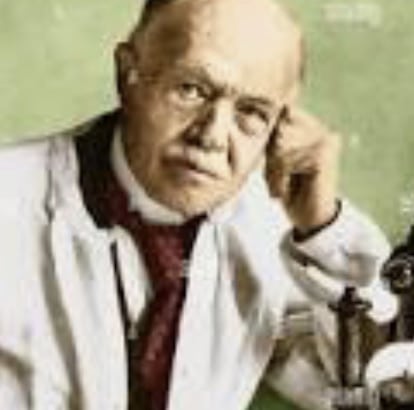
Charles Jules Henri Nicolle was born on September 21, 1866 in Rouen, France. His father was a doctor at a hospital in Rouen, inspiring Charles to enter the field of medicine, while his older brother, Maurice became a medical microbiologist. Charles pursued his medical studies at the University of Rouen and earned his degree in 1893 at the Pasteur Institute of Paris. After graduation, he embarked on a career as a physician, but later turned his attention to bacteriology and infectious diseases.
In 1909, he was appointed as the director of the Pasteur Institute in Tunis, Tunisia, where he conducted much of his groundbreaking research. One of his most significant discoveries was related to the transmission of typhus, a deadly infectious disease. He demonstrated that typhus could be transmitted to humans through the bites from lice. Nicolle’s work on typhus transmission was instrumental in the development of measures to control the disease, particularly during World War I when it posed a significant threat to soldiers.
Nicolle tried unsuccessfully to develop a vaccination against typhus, but discovered that sodium fluoride could sterilize parasites, rendering them non-infectious, while preserving their structure. Using this technique, he was able to develop vaccines for gonorrhea, cholera and some other staphylococcal bacteria.
In 1928, Charles Nicolle was awarded the Nobel Prize in Physiology or Medicine for his discoveries related to typhus transmission and his contributions to the understanding of infectious diseases. After receiving the Nobel Prize, Nicolle continued his study of various infectious diseases, including malaria and tuberculosis. In 1930, he played a key role in establishing preventive measures for the control of infectious diseases in Tunisia. Nicolle’s research laid the foundation for our understanding of how certain infectious diseases spread, and his work continues to influence the field of infectious disease research and epidemiology.
